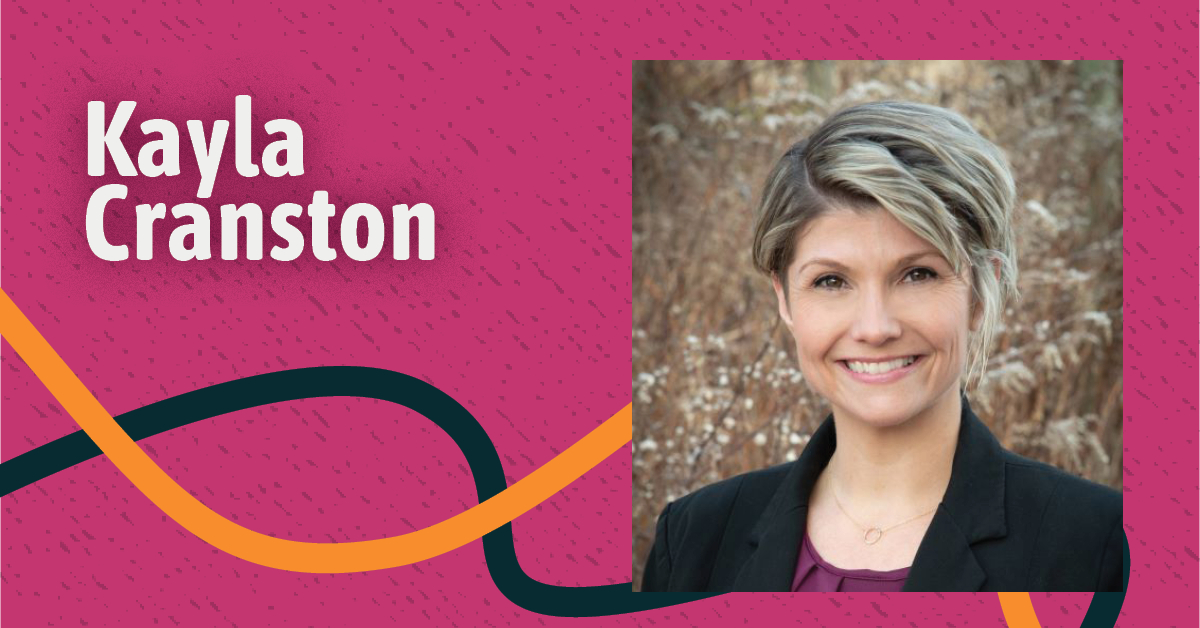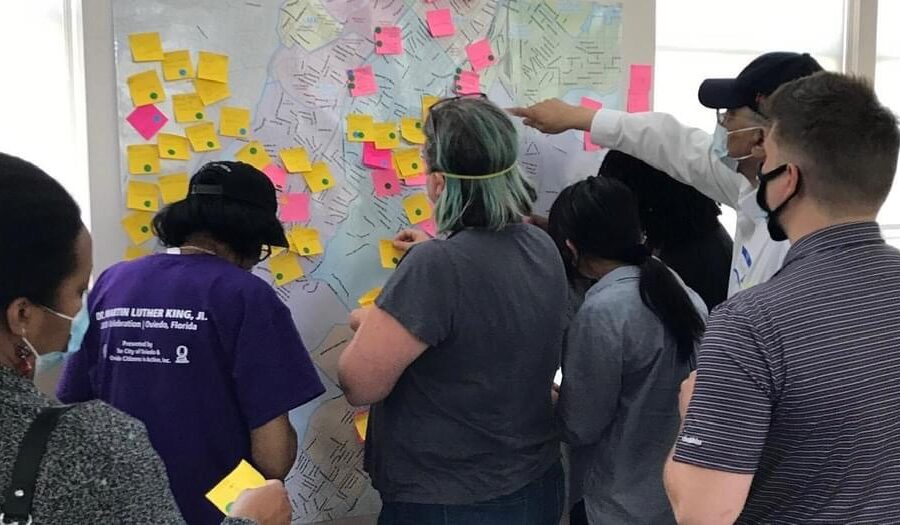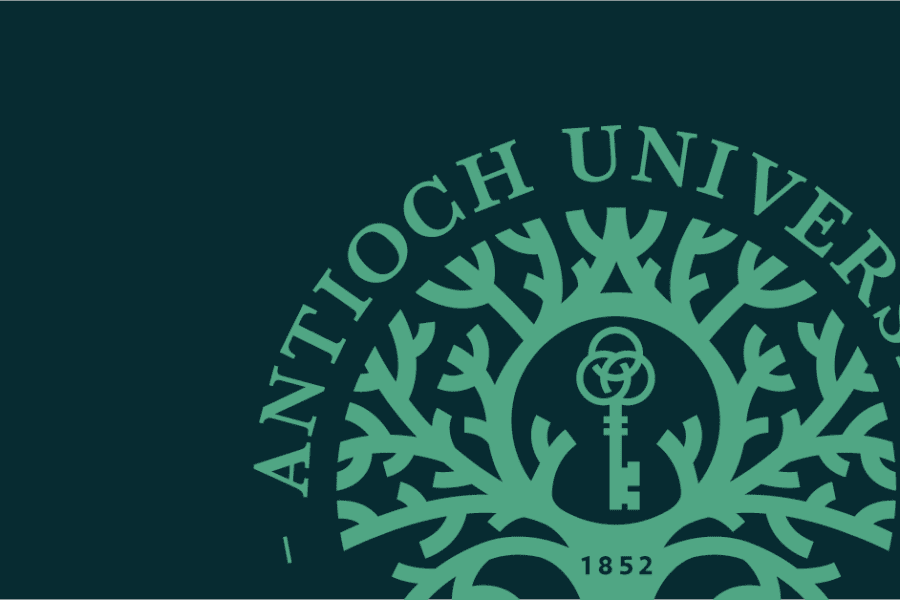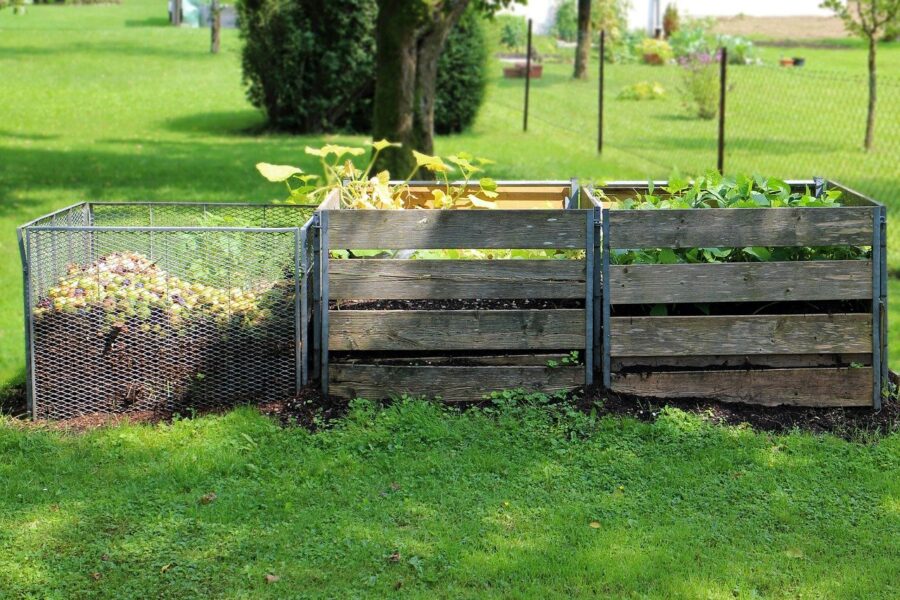Cranston honored for her work to co-create new conservation programming at the Saint Louis Zoo.
Dr. Kayla Cranston, faculty in the MS in Environental Studies program and Director of Conservation Psychology Strategy and Integration is the recipient of the 2022 Outstanding Service Award from the Association of Zoos and Aquariums (AZA). The Outstanding Service Award from the Association of Zoos and Aquariums honors the highest quality member services that advance the zoo and aquarium movement. The AZA is a global leader in promoting species conservation and animal welfare by leveraging the size, scope, expertise, and public trust of its member institutions. The Outstanding Achievement award was presented to Dr. Cranston at the Honors and Awards Ceremony during the Association of Zoos and Aquariums Annual Conference on August 31st. The conference was hosted by the National Aquarium and Maryland Zoo.
“The ultimate goal is to help a national network of conservation organizations move toward a true allyship,” Cranston says. “To help us move toward the equally important goals of community wellbeing and wildlife conservation.” Cranston aims to bridge knowledge about human behavior with conservation efforts to support social science research in zoos and aquariums.
Cranston led AmeriCorps VISTA members in a project at the Saint Louis Zoo in Missouri. Cranston currently directs an exciting, cross-campus project called the Co-Designing Conservation Partnership where Antioch faculty and graduate fellows are partnered with AmeriCorps VISTA (Volunteers in Service to America) and as teams, they work with zoos and aquariums across the US. The goal is to work with local historically marginalized communities to co-create new conservation programming.
Cranston started her cross-campus project called the Co-Designing Conservation Partnership in 2019. She has since seen a growing number of environmental professionals who agree that equitable and meaningful engagement of local community members in the development of programming is essential for catalyzing the durable, long-term action needed to conserve biodiversity.
“The Co-Designing Conservation initiative exemplifies the cutting edge of what the field of Environmental Studies and Sciences needs to be doing,” said Dr. Abrash Walton, Director of Environmental Studies MS and Interdisciplinary MA Programs at Antioch’s Department New England. She says Cranston’s work is, “really thinking about how to create belonging, how to create inclusiveness, how to build up historically marginalized communities.”
Cranston serves as Director of Conservation Psychology Strategy and Integration at the Conservation Psychology Institute at Antioch University. Cranston is working with a broad network of psychologists and conservation practitioners to integrate current human behavior research into their urgent work toward biodiversity conservation. Before joining the Antioch team, Cranston was the Conservation Education Researcher at Saint Louis Zoo where she designed and conducted studies to measure the psychological impact of the Zoo’s conservation education programs on participants.
Cranston is the author of many journals and articles and is currently in the development of her next publications. She is being praised for the application of her expertise in long-term behavior change working across cultures in biodiversity conservation and has most extensively implemented participatory research strategies to foster durable behavior change toward conservation in the zoo and aquarium world.





